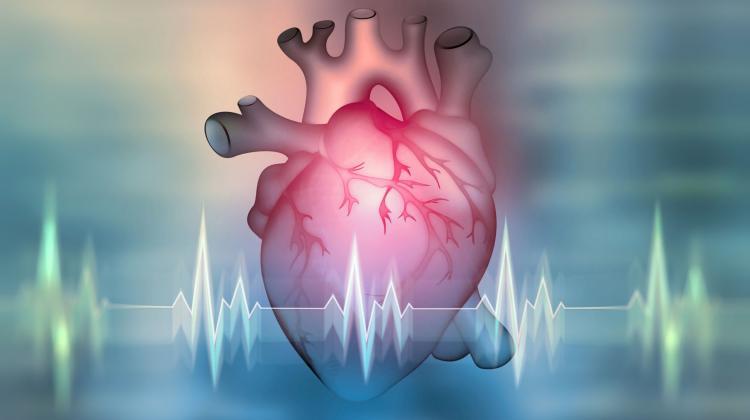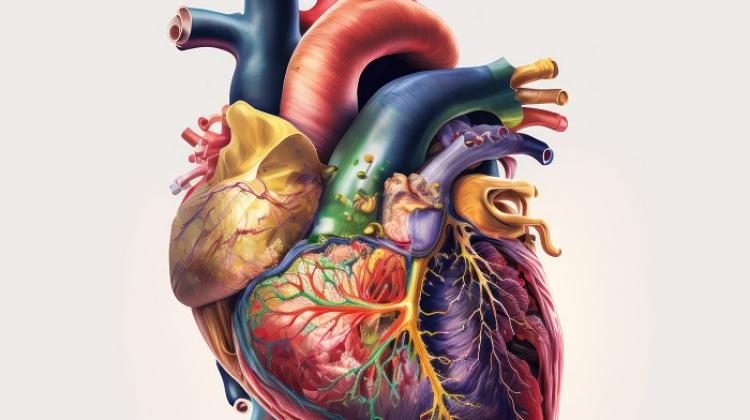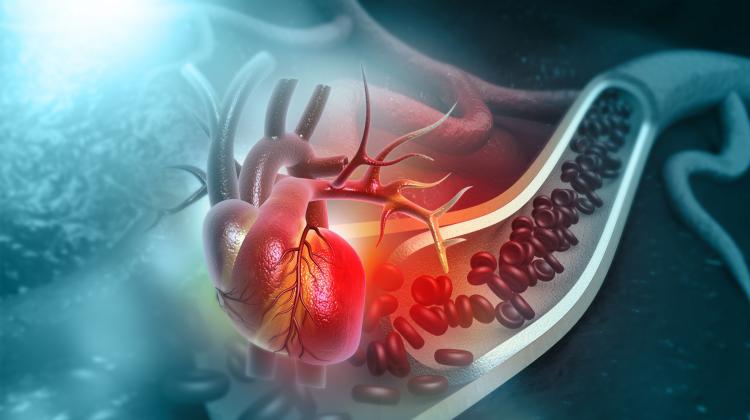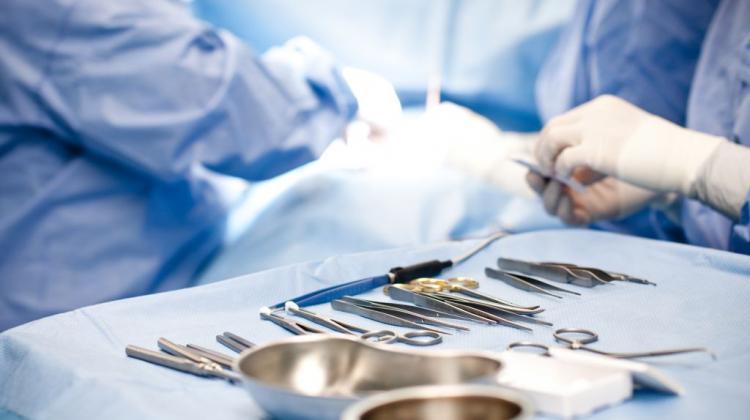Expert: Artificial pumps are more often implanted than hearts from donors
 Photo: Fotolia
Photo: Fotolia
The whole world is moving towards mechanical circulatory support. In some countries, for example in Germany, artificial pumps are already implanted more often than hearts from donors; it will be similar in Poland, the President of the Polish Society of Cardiothoracic Surgeons, Prof. Mariusz Kuśmierczyk told PAP.
"In Germany, 1,000 artificial pumps are implanted every year, and only 300 heart transplants are performed. Circulatory support is the future, because there will never be enough donors, although we are trying to find more. That is why the whole world is moving towards mechanical circulatory support" - the expert explains.
There are too few hearts for transplants, and there are shortages of other organs as well. In the USA, statistically 10 patients are waiting for each heart from a donor. In 2018 in Poland, 147 heart transplants were performed, 45 at the Institute of Cardiology in Warsaw. One of the reasons for the growing demand for donors is more frequently occurring heart failure, in Poland affecting at least 700-800 thousand people.
According to Prof. Mariusz Kuśmierczyk, artificial pumps providing circulatory support are an opportunity for patients waiting for a heart transplant, they prolong the lives of patients with severe heart failure. "We use two types of very good pumps. They are very expensive, the cost of such a pump and its implantation is 75 thousand euros, financed by the National Health Fund" - emphasizes the specialist, who is the head of Department of Cardiac Surgery and Transplantology of the Institute of Cardiology in Warsaw.
"Pumps - he explains - support the left ventricle, we implant them in the heart`s tip; they are continuous flow pumps. The pump impeller is suspended in a magnetic field to prevent thrombosis. In any case, it occurs much more rarely than in the case of the previous generation pumps, centrifugal pumps with a mechanical impellers" - the expert explains.
The pump sucks the blood from the inefficient left chamber and delivers it to the ascending aorta. "The disadvantage of this pump is external power supply, which means that a wire must run through the tissues. The patient wears batteries on the belt or in a bag and must recharge them from time to time. Infection of this wire is a common problem. But we can deal with it, patients after implantation of these pumps usually function very well" - the specialist assures.
Thanks to the pump - he explains - patients who could not walk from the chair to the bathroom, begin to function normally. They return home and can live for a long period with such a pump, waiting for a heart from a donor. "The pump can pump up to 10 litres of blood. This is important for patients with heart failure who weigh a lot, for example 140 kg. After implanting the pump, some of them even lose weight, because they start to move more" - says the President of the Polish Society of Cardiothoracic Surgeons.
In 2018, the first completely artificial heart was implanted in the Institute of Cardiology in Warsaw; it consists of two chambers and four mechanical valves connected to an external controller that generates and monitors blood flow. "It was implanted in a 58-year-old patient after the removal of a primary right ventricle tumour. The patient, after a few chemotherapy treatments, is waiting for a transplant" - the specialist adds.
He emphasizes that in Poland, pumps are primarily a bridge for transplantation. "In our country, pumps are not implanted as the target solution when the patient can no longer undergo heart transplantation. At least for now, it is difficult to carry out for ethical and legal reasons. Other countries, such as the US, have different solutions" - he explains.
In cardiovascular support, the Institute of Cardiology in Warsaw has a full set of devices used in the world. Another example is ECMO (Extracorporeal Membrane Oxygenation). This device for extracorporeal circulation (a pump for extracorporeal oxygenation of blood) can work as a bridge for transplantation up to two weeks, and in some cases up to several weeks.
"But this is a short-term support, used to treat cardiogenic shock when the patient is unstable. We check if the heart can still be regenerated with this pump, or the patient needs a transplant. In 2018, we performed 65 ECMO implants, the largest number in Poland. Mortality in the case of such support is high, usually up to 50%, but we have a survival rate of almost 80%. This is due to the fact that our clinic has a lot of experience in this area, which is why we accept patients from other cardiac surgery centres" - Prof. Kuśmierczyk says.
According to the expert, it is alarming that all cardiac surgery centres in Poland want to implant pumps for mechanical support of blood circulation. "While implanting a pump is not a complicated procedure, it is necessary to provide the patient with proper care. At the institute, we have created a special patient monitoring program for this purpose, thanks to which the number of complications has decreased. For example, we do not have gastrointestinal bleeding after the pump implantation, and they usually occur in 25% cases"- he argues.
According to Prof. Kuźmierczyk, in a few years, 200 to 300 pumps supporting circulation per year could be can be implanted in Poland. "I think it would be best if these pumps were implanted as before, only in centres that perform heart transplants. They are used when there is a chance that it will be possible to perform a heart transplant. Other centres also want to perform transplantations and implant pumps. If there were not enough centres for the number of donors, sure, but that is not the case. Ambition is not enough, you need experience" - emphasizes the President of the Polish Society of Cardiothoracic Surgeons.
PAP - Science in Poland, Zbigniew Wojtasiński
zbw/ agt/ kap/
tr. RL
Przed dodaniem komentarza prosimy o zapoznanie z Regulaminem forum serwisu Nauka w Polsce.


















